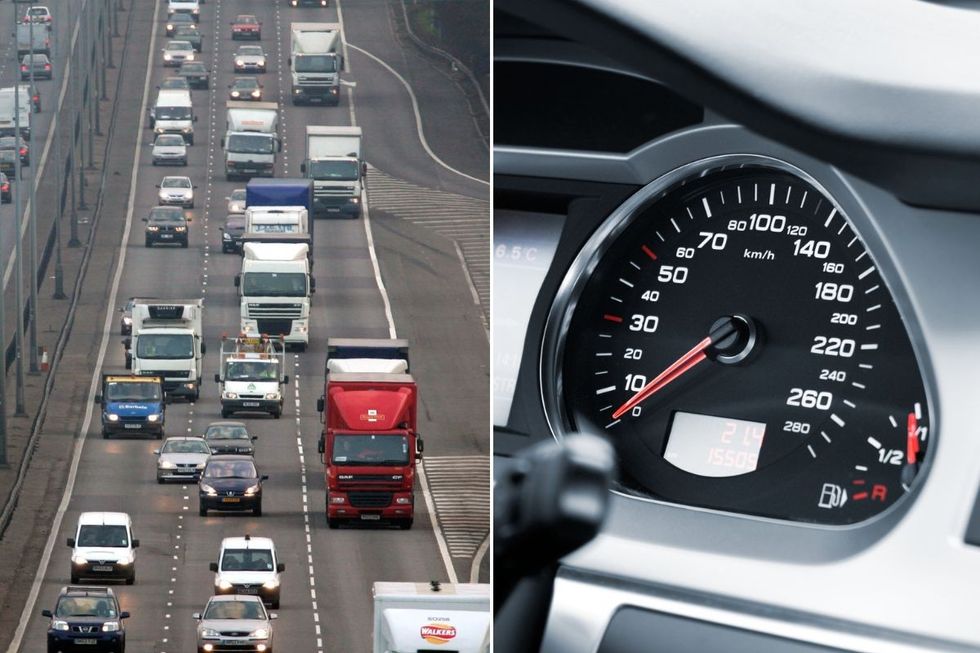One in five motorists risk lives by deactivating key safety features in vehicles aimed at reducing accidents
One out of five drivers have actively avoided using a key safety feature in vehicles due to finding it a nuisance, according to new research from Direct Line motor insurance.
The study revealed that 20 per cent of motorists who have the rear and front sensors installed choose not to use them whenever possible due to finding them actively annoying.
This finding comes as part of a broader investigation into driver attitudes towards modern vehicle technology features, which shows varying levels of acceptance among UK drivers.
Automatic start/stop technology emerged as the most irritating feature, with 27 per cent of drivers who have this function describing it as actively annoying.
Do you have a story you’d like to share? Get in touch by emailing motoring@gbnews.uk

Lane assist technology follows closely behind, with 25 per cent of drivers who have access to this safety feature finding it annoying enough to avoid using it.
Speed limit detection systems also prove unpopular among some motorists, with 18 per cent of drivers equipped with this technology choosing not to use it due to finding it annoying. Under UK law, speed limiter technology is not mandatory.
A Department for Transport spokesperson told GB News: “The UK’s roads are some of the safest in the world and we keep policies under review to help reduce casualties.
“We have commissioned research to look at the benefits and implications of these technologies in Great Britain and will provide updates in due course. Any decision to mandate some or all these new technologies will require consultation and legislation to amend the GB-type approval scheme.”
The DfT added that the UK remains a member of the European New Car Assessment Programme which already incentivises many of the technologies called up in the General Safety Regulation.
Meanwhile, driver drowsiness detection and blind spot alerts show lower levels of irritation, with 15 and 14 per cent of drivers respectively finding these features actively annoying.
Trust issues also emerge as a significant factor in drivers’ reluctance to use certain technologies. More than a quarter (27 per cent) of motorists with remote parking features avoid using them due to a lack of trust.
The same proportion (27 per cent) of drivers expressed distrust in their reverse parking assist systems. Cruise control faces similar scepticism, with 17 per cent of drivers reporting they don’t trust this feature.
Active cruise control and blind spot detection show slightly better trust levels, with 15 and 14 per cent of drivers expressing distrust respectively.
Despite older generations not learning to drive with modern technology, drivers aged 55 were revealed to be more likely to embrace high-tech features than their younger counterparts. The research revealed that older drivers consistently use front and rear sensors more frequently than those aged 17-24 (77 per cent versus 53 per cent).
Matt Pernet, Head of Motor Insurance at Direct Line said: “Car manufacturers invest huge resources in developing technologies to make the driving experience safer and more enjoyable.”
Pernet highlighted the effectiveness of specific features like Autonomous Emergency Braking explaining that these “safety systems that identify potential impact targets ahead, warning the driver by putting the brakes on to avoid a collision, have been shown to reduce car rear-end collisions by half.”
LATEST DEVELOPMENTS:
- Nissan boosts British industry and secures ‘hundreds of jobs’ with new plant producing electric car motors
- Thousands of motorists hit with fines for breaking Highway Code rule despite council investing in deterrents
- Elon Musk’s Tesla faces chaos as Donald Trump ally backs safety investigation into electric cars

However, lane assist and collision avoidance systems show slightly better adoption rates, with collision warning systems showing the highest engagement, with only seven per cent of drivers never using this safety feature.

